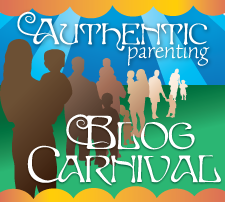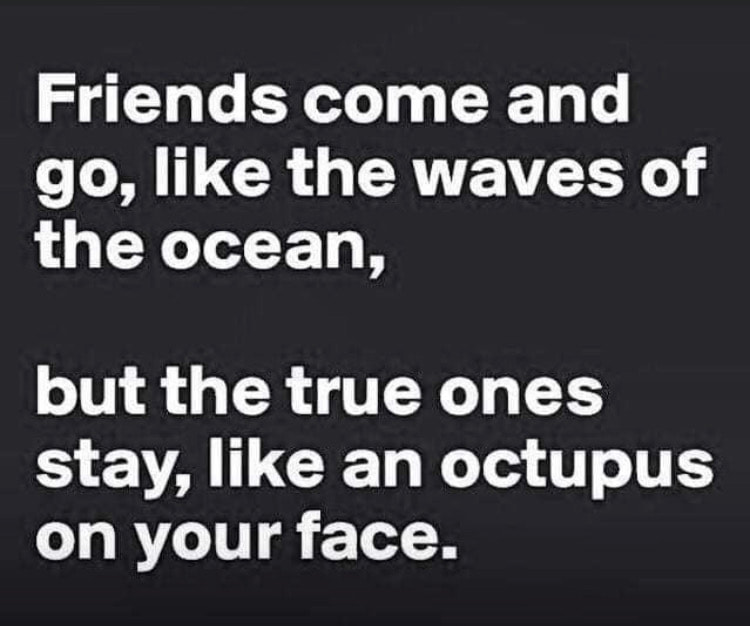|
For quite some time I've mentioned that I don't believe "experts" are the key to any of the really important answers in life. I do think that people who have enough knowledge to be considered "experts" can be very valuable and offer incredible insight into our lives. But what I don't agree with is blindly following "expert" advice, putting experts up on high pedestals, giving them almost "god-like" status, and just generally deferring important decisions to others because they are an "expert". My disillusion with experts largely comes from my dealings with Doctors - because they are the experts that I have had the most contact with. Also, not surprisingly, but interestingly, the issues that have led me away from experts have had to do with: reproduction, contraception, pregnancy, birth, and parenthood. Here is my story and how experts fell from (my) grace. When Mike and I had been married for a year I decided I wanted to give Natural Family Planning (NFP) a try. When we took our Pre-Cana class before getting married a couple came and talked to us about NFP and they were so enthusiastic about it that they really captivated me. So I ordered a book that included support from a person versed in NFP and taught myself. I stopped taking the pill. Mike and I were not ready just yet for pregnancy, so I really was counting on the method working. Well, when I went to my family doctor's office for my yearly woman checkup I talked to the Nurse practitioner about NFP. Let's just say she was not very supportive or encouraging. She kind of laughed and said, "Oh my parents did that! And they got pregnant with x number of kids... Good luck with that." Wow. Well, luckily I was not discouraged and I knew enough already to know that this woman was uninformed. (For instance, the "Rhythm" method or counting days is NOT NFP.) I went on to prevent pregnancy for a year, have two planned pregnancies, and now have been preventing for almost 2 more years. Not a bad track record, if I do say myself. So that was strike numero uno for experts. Onto pregnancy #1. While pregnant with Marisol I decided to take a Bradley birth class to prepare for her birth. Even my own mother was worried that I would "try to go natural" (apparently she knows me better than myself, because I didn't even know at the time that that was exactly what I would do!) Anyways, long story short - becoming informed about pregnancy and childbirth and the state of our maternity care in the United States was a HUGE reality check as far as trusting the medical system. I know many mothers will understand this without further explanation. Our medical system largely treats pregnancy and birth as a disease and the mother and baby as patients that need saving. After Marisol's birth I couldn't ignore the fact that information that I had been led to believe simply is not true. (You can read her birth story here, appropriately the first part I called my most magnificent awakening: Marisol's Birth Part 1, and here Marisol's Birth Part 2) Ok, some seeds of doubt had definitely been planted for me. Now would come the longest, most difficult departure for me. I had entered motherhood (this departure is actually the basis for me writing this blog - to share my experience and reach out to others that they are not alone.) With my daughter, even though I had already made a great leap by having a completely natural childbirth, I was still very much the "A+" student who believed that there was a "right" way to do things (and actually, natural child birth probably fed into this even though it is not the "norm" in our culture). I still believed that if I just read the right books and followed the right advice, then I could master this parenting gig - just like everything else I had mastered in life up to this point (oh perfectionism, you are such a sneaky, insidious character!) So I dutifully made my pediatric appointments and brought my questions in and fumbled through that first year of parenthood. (BTW - click here for an excellent read about the first year of parenthood.) One of my more vivid memories of these appointments was when I naively asked my pediatrician (and he was such a wonderful man - kind, encouraging, and so supportive of me!) if the proper way to put Marisol to sleep in her crib was "sleepy, but still awake". I can still see the expression on his face as he answered kindly, that yes that is the theory so that they learn to sleep on their own. It was almost as if he didn't want to burst my delicate new-mother bubble. But man, now that I look back on it I wish that people were more honest about babies' sleep - that they are supposed to wake up often, and feed often, and that it is NORMAL for children not to sleep through the night - for years even! (Well, I can see that this could get really long. And actually a LOT of this is the very same fodder that I am using to write that book of mine that is supposedly some day going out to the masses. So let's just move along a bit, since this is just a mere blog post and not a tome on the subject.) So let's see, where was I? Oh yes. Ok, so baby Marisol was doing her best to break me of my precious addiction to being perfectly right all the time - my main fix being to turn to experts to give me the ANSWERS please! (Her main methods of breaking me were through her sleep habits which you can read about here.) And then about 2 1/2 years later we were excitedly making plans to let our families know that baby #2 was on the way. (Let's have a little picture break to mark that occasion.) Now, at that time we lived in DC in a tiny 1-bedroom condo with our cat. Mike was in business school at Georgetown, I was babysitting to keep a little cashflow going, and because of these factors we qualified for Medicaid. This meant that the easiest place (that was also covered by insurance) to go for care was the Georgetown hospital.
I don't think I will ever forget that appointment. I was so excited to confirm our pregnancy (we had already taken a couple home pregnancy tests - that were both positive). The OB asked me all of the normal questions. I explained that Marisol, my 2 year old, still was breastfeeding and that in fact I only had 2 periods before getting pregnant. At this point the Doctor said two things that further damaged my trust in experts. First, she exclaimed, "Oh well then we don't even really know if you are pregnant then!" What?!? Because I've only had 2 periods? I still don't get it. Especially since it is well known how accurate home pregnancy tests are. To this woman's benefit, I'm sure that the "average" patient isn't as "in-tune" with their body as crunchy-granola NFP types like me - but still! So instead of me peeing in a cup or taking a bit of blood or whatever other hocus pocus is possible to confirm pregnancy, she got out the wand ultrasound to take a look. Oh man, I still get angry thinking about this. Not really at her or even the procedure so much. I mean, it's just a wand up your vagina right? No, it wasn't painful and I didn't feel humiliated or anything (although I know lots of stories of women who have felt this way after OB appointments) No, I'm mad at myself. For not having the guts to say, "No Thanks." I didn't need that ultrasound and if I could go back I wouldn't get it again. But I also know there was part of me that wanted to show her - YES I AM pregnant. The second thing she insisted was that Marisol would have to wean by the end of the first trimester. I did another internal "What?!?" I mean I knew my daughter (and myself) and I knew that wasn't happening. I was about 7 weeks pregnant - so in another month and a half? Plus I had already done some reading on tandem nursing (nursing more than one child) so her declaration confused me. One thing I am good at is nodding my head and smiling. And then doing whatever the f*ck I want. So I went home and googled nursing while pregnant and every site that popped up confirmed that for the vast majority of mamas and babies it is perfectly safe. Big Strikes 2 and 3 for experts (well more than that if you count my first pregnancy/birth and Marisol chipping away at the doctor's advice, but these were two big ones). I only had one more appointment at GT and thankfully not with that Doctor. I switched to a birth center and never looked back. At the birth center we had to fill out paperwork before the baby came. One decision was about circumcision. The birth center would not even do them - it was against their philosophy - and if we had a boy and wanted one we would have to schedule an appointment. By this point in my parenting journey it was easy to check the "no" box and skip that procedure for our son. I'm so grateful that it was that easy for us, because for MANY parents it is not. I'm also glad that Marisol was a girl because I'm sure I would have just gone along with whatever prescribed advice had been given to me on that topic too. This may seem a little unrelated to the whole "experts" theme of this post, but in my mind they are very much related. There are so many mothers out there who regret decisions, like circumcision, and just go along with them because their Doctor tells them it's the thing to do. And while we're on controversial topics, let's talk vaccines. I don't think this topic is going to be "resolved" any time soon. What I do know is that with my daughter I questioned nothing, researched nothing, and she had every shot "on time" for the first few years of her life. With my son I was a different person - largely because of the experiences above. So I started reading. And that just made things more confusing - because there is a lot of conflicting information out there and the opinions on either side of the debate are very intense. I can tell you someone (or more accurately someoneS) who didn't help though - you might know by now. Our pediatricians at the Georgetown hospital basically made me feel stupid for even questioning the possibility that maybe vaccines aren't all they're cracked up to be. It was the straw that broke my faith in experts forever. I was not treated respectfully even though I know that I am an intelligent, educated woman who is just trying to make the best decision I can for my kids. When the "Dead Baby Card" was thrown at me I knew it was time to leave and find a care provider that was supportive of me and Mike, our kids, and our choices. So there you have it. I think that there are lots of Doctors who are good people. I think that there are lots of Experts who have valuable knowledge and skills to share. What I will not ever do is turn my life, body, or children over to an expert and let them make a decision for me. I've seen too many times that experts often don't know what they are talking about - so it's up to me to do my homework so I can make the best decision possible. I've been meaning to write this post for over a year now. What finally spurred me to do so was a new friend in distress. Her little girl is ready to home school - something this wonderful mama actually wants to do anyway! But the mom also wants to make sure that taking her daughter out of school is the best decision for everyone - so she consulted with teachers and administrators at the school to gather more information. Well, the school-folk ("experts" if you will) had the audacity to make the mom feel like the reason her daughter is saying these things to her is due to some fault of hers - in her home or her relationship with her child. And you know what? That ticks me off! How dare anyone presume to know more than this beautiful woman about her own daughter. And how dare they assume that they know better what is good for the little girl - the same little girl who is clearly telling her mother what she wants and needs. Do they really think that she would confide so much in them? Mamas and Papas - please use experts the way they are meant to be used. As sources of information and support. They are not gods or goddesses, they are not superheroes with capes - they are people like you and me with specialized knowledge. But they do not know you or your family better than you do. YOU are the expert on that.
2 Comments
Susan, Thank you so much for your lovely words and wonderful messages. So my wonderful cousin (actually she's married to my cousin, but I consider her family now and therefore call her my cousin...just try to stop me) left this comment a while ago on this post and I've been working a little at a time on a response. Janet blogs herself at The House on Salem Street, and I've only come away from her writing dry-eyed once or twice. She is amazing, I highly recommend you check her blog out. Just make sure you have tissues nearby. Before I dive into answering some of Janet's questions I want to get a few general thoughts out. First I want to address the misconception of Unschooling/Peaceful Parenting that parents following these philosophies never say no or are never stern. It's just not true. I do know that many try not to arbitrarily say no and many try to find the "yes" as often as they can (I'm sharing a great link later on). As for being stern or sharp - I find that as my kids get older I am sharper. But I'm also opening up to the idea that it isn't necessary. (I think I'm opening a whole new can of worms here, so I'll try to state it simply for now.) What I mean is - since my kids have not become desensitized to harsh tones, they *do* react to it (well my 7 year old daughter especially). I can simply say, "That was mean" in a very low voice or give her a look and she is so sensitive to it that there is an immediate reaction. However, I'm actually beginning to see that even that isn't usually necessary. Ugh. I'm on a tangent here. But my main point is (and I've heard many other writers/sharers say the same) is that just because someone (like myself) believes in Peaceful Parenting, that doesn't make us perfect. Please always know that. There are times for stern tones - they just aren't as necessary or often as most of us believe. Another thought I had run through my mind is: There is no magical answer. There are TONS of amazing resources and people out there. This is a good thing BUT it can also be overwhelming. Sometimes you may be into researching and trying new strategies BUT many times you may be best off following your instincts and tuning into yourself and your kids. It helps so much to have one or a few big ideas guiding you - for myself Kindness is a huge one. Also, just rejecting punishment in itself is a huge step because it takes it off the table as an option. So without further ado, or tangents, or bush-beating - let's jump into some of Janet's questions. For example, if one child is hurting another with a toy (stick, whatever), would you talk about it first and not just remove the toy (I would always explain and talk after taking action)? This to me is a clear case of safety coming first. ALL of our kids need to feel safe in their own homes. Safe with us, their siblings, other family members, and themselves. If they are already hurting someone, else they need to be stopped, when they are little this often means physically by holding them. I think that the important thing is that there are lots of other times when you are not using physical force. For example, instead of grabbing something from a small child (because you "think" it's dangerous {scissors jump to mind - I find it is rarely necessary to grab them from a toddler and may even more dangerous to do so!} or because *they* just grabbed it from another child), you do NOT grab from them. You try to trade with them, talk to them about not grabbing, wait till they drop it or move on etc. When children see that you use physical force as a last resort and only in instances of safety (another example people love to throw out there is a child running into the road - of course you stop them!) they get the message. Oh I guess, I just answered your parking lot question with that one too. Parking lots are tricky. Kids want to be independent, parents want kids to be safe. (Because parking lots often feel like one of the most dangerous places in the world!) I've tried lots of different things - carrying the child, encouraging holding hands - often if I hold out a finger and they wrap their fingers around it, they are more cooperative than if I tightly grab their hand, holding onto a hood/shirt, of course having many conversations about dangers in parking lots, pointing out when I see cars engines are on or even backing out, sometimes grabbing a shopping car in the parking lot and putting them in it right at the car. For the child who refuses to budge when the family needs to go somewhere... what do you do in that situation... if talking and talking doesn't work? Once again there is no one-size-fits-all answer here. Because we have chosen a lifestyle with maximum flexibility there are really very few times when our whole family HAS to go somewhere. We really have chosen most of the things we do. I think what would help answer this is a post about how I get out the door with my two kids with maximum cooperation from both of them. Marisol has 3 classes a week this year and so far we haven't missed any - so we are getting better at getting out to places by certain times. We've had many years of NOT needing to be hardly anywhere though, which I'm sure has helped. Gerry is in a phase where he loves being home - he really doesn't want to leave, even when it's a place he knows he has a lot of fun. Here are things that help us get places: 1) Make appointments/classes later in the day. We are all slow starters and neither of my kids like to be rushed right in the morning. 2) Start talking about our plans early in the day. When he says, "No I don't want to go!" I usually lightly say, "You don't want to go? We're not going yet, we have time." I also remind him of fun things we do at the place (trampoline at friends' house, playground at church etc.) 3) As we approach leaving time I get everything ready (snacks, extra clothes, iPhones for car etc.) and I also give more "It's almost time to go!" prompts. 4) When Marisol and I are ready I let Gerry know. He's often at the computer and again voices his discontent. I offer empathy - even calmly affirming him by saying, "I hear you" or "I know you don't want to go". If there is a short clip left of what he is watching always respect his wish to finish it - if it's longer (which usually doesn't happen - if he's watching TV I'll usually give him enough warning - this is the last show!) we try to pause it. I ask if he wants to bring anything with him (his "lovey" is a KING SIZE sheet right now! ha! So that comes with us along with Raoul - his new remote control car). I've found that Gerry actually adjusts really well to going once we're moving. Not like his big sis who often held onto her discontent until we returned home. The more people in the family, the more difficult it is to always do things that everyone wants to do. It helps so much to stay open to creative solutions, to offer empathy, and to make things as fun as possible. We are also not above a little sweet bribery! Mostly kids want to be with us doing fun things so we can use this to our advantage. I talk with my kids all the time and explain my reasoning and ask their opinions and compromise when I can, but there are a good amount of situations in which they do need to be told no, and sometimes it can't always be with a gentle tone. You are correct - there are going to be plenty of times when kids don't get what they want right when they want it. I think the thing to keep in mind is that our conventional, modern parenting practices has kind of made "no" the default mode for kids. It is really healthy for us to examine this phenomenon. Because always being told no is NOT healthy. It squelches curiosity and spirit and weakens our connections to each other. Sometimes we can say yes is creative ways - for instance when we're tired or it's bedtime, "Yes we can jump on the bed - tomorrow" etc. Here are a lot more ideas about saying yes. I wrote a bit about the idea of a gentle tone above. I think for myself (as I alluded to before) this is actually an area that I'm growing and changing in right now. It didn't help Marisol when I told her she was mean - she knew. And because our relationship is so strong and connected she had no problem telling me that it didn't help her - that in fact it made her feel worse, when what she needed was to feel better so she could DO better. (And this reminded me of a post I wrote a while ago in which I talked about a book called The Old Way. The author, Elizabeth Marshall Thomas talks about how children in this tribal society were almost never "reprimanded" and they were just delightful human beings to be around!) Also, there are plenty of ways to redirect a small child that don't involve being stern - for instance by being playful! This is an idea that I definitely need to think on more and can be expanded on. I think that the biggest thing you hit on is how THE IDEA that sometimes we "must" be stern is a limiting idea. Just questioning that attitude will start to bring about change. In fact, there are plenty of ways to be kind and gentle when our kids aren't able to get what they want. Being told NO in fact does not have to be a harsh experience. (However, we may have to deal with more expressive feelings in this scenario. The harshness may be what we are using to keep our kids "in line" and behaving in a way agreeable to us. ie - no tears, accepting the "no" or "consequences", moving on etc) All that being said, one thing I do NOT want to do is make any parents feel guilty for not being "enough" - gentle enough, fun enough, creative enough, loving enough... etc. We try. If things don't go the way we wanted them to we have lots of things we can do - talk to our kids, reach out to others for creative ideas, TRY AGAIN, love ourselves unconditionally and recognize all of the things we do well. Remember that just by believing we can do better, we are being the best parent to our kids possible. And this is getting long now, but as for tantruming and kids. I've had my fair share of tantrum experiences (we call them meltdowns or MDs in our house :-P) When Marisol was littler I tended to disengage - especially when she didn't want hugs etc. But now I know that there are ways to just be present - to literally JUST BE - and let them get their feelings out. The thing is, the feelings aren't going to go away so we get to choose how we deal and react to them. We can add to them or we can ride them out. I'm adding a few links at the bottom that may be helpful. I hope this was helpful! If anything jumps out at you or you'd like me to expand on it please let me know! Links to check out:
Hitting and Peaceful Parenting When Children Hit - 10 Tips for Parents by L.R. Knost Toddlers, Tantrums, and Time-Ins, Oh My! by L. R. Knost Peaceful Parent Institute - Toddler Articles By Genevieve Simperingham This morning I had the honor of speaking with Dr. Ashfaq M. Ishaq. (Click on his name and then open the document to read more about him.) My purpose was twofold - to find out more about the International Child Art Foundation (ICAF) so I could pass that information on to readers; and, I wanted to let the ICAF know about my calendar project. I was nervous about calling (I mean I was calling to tell them that I was giving them money after all... wait a second, why was I nervous again?? Ha!), but Dr. Ishaq put me at ease immediately. He was kind and gracious, humble, and generous with his time. In fact, he was everything I respect in a person and exactly the kind of person I would expect to run an organization like this. I was NOT expecting to talk to the founder of the organization, but they put me right through to him!
Here is a summary of my call with him (cut short when my 4 year old came searching for me and yelling for me to stop talking! Of course...) Me: What gave you the idea of starting the ICAF? Dr. Ishaq: 17 years ago I was amazed that there was no national organization for arts for children in the United States. Most organizations are at the local or state level. We all know that there is power in the arts - art is a powerful universal language. We believe in the power of art in encouraging creativity and empathy in children - essential traits for solving problems our world faces now and in the future. Me: Is there a particular project within the ICAF that needs support now? I know that you run several programs. Dr Ishaq: Of course - The flagship program is the Arts Olympiad which is a free program for schools and students, but of course it is not free for us! For every $1 we receive, we can engage 1 more child. So we are very cost effective. Many schools do not even have art teachers or programs anymore, so in this way we can bring art back to communities and students who no longer have easy access to them. Me: Why should people support ICAF? Dr. Ishaq: For a better future for all. All the problems we have we need creativity and empathy to solve. Me: If there was 1 thing you want people to know, what would it be? Dr. Ishaq: There is a phenomenon we call the 4th grade slump. Children are born creative and curious. For whatever reason children in this age range (8-12 years old) who were previously uninhibited in creative expression become less creative. At this point my Gerry desperately needed me! So our conversation ended quickly. I have to say I was surprised by his last answer. I felt like my questions were a bit redundant (I blame it on "mommy-brain"!) so I thought he would again emphasize the importance of empathy and creativity in solving problems (and I, of course, completely agree with him on this point!) So when he brought up the creativity slump I was at once intrigued. I (surprisingly) have my own theories about why this occurs (ok, I know... it's not so surprising) but what I most admire about Dr. Ishaq and the ICAF is the focus on taking action to combat the problem. This morning I woke up a little bit tired and not feeling very motivated. But I had it in my mind that I wanted to try getting in touch with someone from the ICAF. When I found out that I'd be talking to the Founder himself, I definitely got a little adrenaline rush. But Dr. Ishaq was so wonderful that my nerves quickly settled and I learned that this organization is every bit as remarkable as I thought it was the first time I read their mission statement. I love that he had this idea and he set out to put this plan into action and now the ICAF is flourishing. I learned this morning the power of picking up the phone and making a new connection. I learned that by taking a small step I can change the dynamic of my whole day. Most importantly, I learned that even I, a stay-at-home-mom, can be an agent of change by using the resources and time available to me. We've already sold almost 20 calendars and now that I know that even $1 makes a difference for a child somewhere, I feel great about the contribution we'll be making to the ICAF. But there are still 5 more days to buy a calendar and help me spread the word! Click here to read the original post about my project and see the artwork. Please share this post or any of the others I've written about the project. If you're ready to buy now, click the button below. Each calendar is $15 (inluding tax and shipping) and 100% of the profits are being donated to the ICAF. Thanks for reading and your continued support! I'm learning so much through this project. Welcome to the November 2013 Carnival of Natural Parenting: Feeding Your Family This post was written for inclusion in the monthly Carnival of Natural Parenting hosted by Hobo Mama and Code Name: Mama. This month our participants have shared recipes, stories, and advice about food and eating. Please read to the end to find a list of links to the other carnival participants. *** I've had a post in my head since shortly after starting this blog called, "Focus on Food" - that's almost 2 years... and I still haven't written it yet. This post seems more difficult to write than last month's post about Technology use in our family. Probably because I have more hang-ups to work through still. After writing last month's post about No Limits on Screen-time I started thinking about how "no limits" isn't really an accurate description. Because there are times when our screen time is naturally limited - sleeping comes to mind immediately. (No, I'm not being facetious, I really mean that is a naturally occurring limit to screen time.) Another would be wanting to be certain places at certain times (although in our family we do tend to bring little screens with us in the car, so I guess this is a limit on the "Big TV".) Anyway, a better way of looking at our technology use is that we have lots of choices and try to support each other the best we can. With that in mind I believe that the ideal situation in feeding my family is having lots of choices available and allowing individuals to decide what and when they eat (and usually where in our house.) The two main challenges I've had to overcome in implementing this "ideal" are: 1) My background with food - I've never been that interested in cooking as a child or young adult. (<-- I guess I can't call myself that anymore?!?) My mom didn't enjoy cooking that much and it wasn't something we did together. We did LOTS of other things together and did eat a healthy diet (she was always great about having a vegetable at every dinner!) but we were also very busy. School (my mom was my math teacher in the 9th and 12th grades!), band, sports, and keeping up with the family business (golf course) were our main focuses. When I went to college I had a meal plan and rarely cooked. So I first started cooking at a very ripe age - in my 20s. I didn't REALLY become interested in food and cooking till AFTER having children. Starting a new interest when you have babies is probably the most challenging time to do so - because you don't have the time, energy, or mental resources to do so. 2) Societal expectations - We are mostly expected to control our children's "intake" in our culture. "Three more bites and then you can have dessert," and "No, you already had X lollipops, you may not have another," are common phrases in our culture. Children are praised for being "good eaters", "cleaning" their plates, or reminded of the "starving children in Africa" as if eating more will somehow help. Other pressures are our ideas that eating poorly will negatively affect our kids' health - their teeth, their weight, children's diabetes is on the rise etc. I'm not arguing the truth of these trends. However, the fear of these things adds to an already controlling culture. We don't trust our kids to make the best choices for themselves - the same way we don't trust them to choose in regards to technology, sleep, and just about any other issue you can think of. I think this is the biggest challenge we face as a culture. Especially because there is so much food to choose from and we keep learning more about how our food is grown and raised affects us. It is easy to want to control everything that goes into our children's mouths - after all we want the best for them. But for me it is not worth sacrificing the trust in our relationship. So I work hard to push back against these societal expectations and pressures. I want to add in here that I have an awesome partner in the kitchen. Mike actually took the lead in keeping us fed from the start of our marriage. He loves to grill and often cooks dinner after working all day at the office - this was especially true when the kids were really little. I know - I'm really lucky. We've really both been on the same page about moving our family in healthier directions while not stressing ourselves or our kids too much, because that is just as important! We don't try to force our kids to eat foods but we do try to offer lots of options. And now that I've acknowledged my partner in crime, here are the ways I've personally grown: 1) Focus on Myself: Because I believe that the best thing I can do is model healthy eating myself, I focus on MY diet instead of worrying what my kids are eating all the time. I eat healthier than I ever have, since having kids. When I was in college I went through a phase of focusing on "Strive for 5" (trying to get 5 servings of fruits and vegetables every day). Now I don't bother counting, but because I eat so many fruits and vegetables, I'm confident that I'm getting at least that many every day if not more. Green smoothies are a regular part of my diet since Mike bought a Vitamix for my birthday a couple of years ago. I'm also expanding my cooking repertoire slowly but surely - and enjoying it! Some things Mike and Marisol also eat, and some things only I eat. 2) Offering "Monkey Platters" to my kids: This is a popular term in unschooling circles, started by Sandra Dodd. Marisol calls it a "tray of food." They really eat a lot of healthy food when they are given choices in this appealing way. Last night Marisol ate a whole tray that included green beans, a cheese stick, strawberries, baby dill pickles, and celery with peanut butter. Gerry's go-to foods right now are strawberries and dill pickles too. He will also eat raw carrots sometimes. 3) Releasing (and Re-releasing) Fears: Feeding my kids has been a challenge for me - one that I didn't anticipate. (Although, now looking back I'm not sure what I thought - that somehow it would be easy even though I'd never spent much time thinking about food or cooking?) My daughter is kind of like the "poster child" for Unschooling. She does makes a lot of choices that jive with societal expectations of what is "healthy" so it's easy to give her a lot of freedom. My son on the other hand has a HUGE sweet tooth. So it is more difficult with him to let go, relax, and trust him. I mentioned above some of the healthy foods he eats regularly. The truth is he eats a lot of sweets and "processed" foods too. His main go-to dinners are out of a freezer box - we feed him fish sticks (the best quality ones money can buy!) almost every day. But he is healthy and happy and growing so those are the things that I work to focus on. Because he's really in a narrowing phase of foods I keep offering foods I know he likes and I trust he will start expanding his options when he is ready. I feel like I could write a book about feeding my family! There will always be more learning and growing to do. One aspect that I didn't touch on here that deserves a whole post (or book?) unto itself is breastfeeding. My children's first food was probably the best I've made and the easiest. And it always has given me comfort knowing how much nourishment and comfort they've received through breastfeeding. I loved looking at all the pictures we've taken of food we've made or eaten out at restaurants in the past year or so. Some things have become regular additions and others we've only made once or twice. But it all looks so yummy! I think this is a pretty good representation of where we are right now. I'd love to hear about your challenges and strengths when feeding your family! ***
Please take time to read the submissions by the other carnival participants: (This list will be updated by afternoon November 12 with all the carnival links.)
I wrote a post last summer similarly titled to this one. But when my daughter saw it and asked me to read it to her, she wanted me to take it down. So I did. Well, a while later she told me I could publish it again. I asked her if she was sure - yes, yes, YES (and don't ask me again!) She has asked me a couple of times if I wrote it again (note to self - next time save the draft!) Anyway, the title has changed and the content will be different too, but I'll share the same story that started it. One day in the car on the way home from her friend's house Marisol told me that the kids were using bad words. "Oh?" I said nonchalantly. (This is how I keep those communication lines open - always act NONCHALANT! Nothing, I mean NOTHING, is a BIG DEAL ever!) "Like what?" I'm thinking she's going to throw out some curse words here. I know she knows a couple. "One told another to Shut Up. And they were calling each other stupid." Phew! Big sigh of relief. So glad I was nonchalant. I agreed with her that those words are not nice at all. I'm sure there was more conversation, but honestly it's been months now and I don't really remember the rest. But it got me thinking about how "sheltered" Marisol might seem to some people if she thinks that those are BAD WORDS. And yet... she's not sheltered. She watches way more mature television programs than most kids her age (I'm not allowed to disclose which ones, I know that for a fact! She doesn't want people to know.) And honestly, I know most people would judge Mike and I harshly for "letting" her watch some of the things she does. But I know that she learns a lot from them all - because an adult is always watching with her and there are lots of great conversations that stem from them. Marisol also moved to her own bed the past summer. She has coslept with me since I finally admitted that the crib experiment was a failure (she was about 6 months old). Now we have plans to make our "guest" bedroom into her own room soon (friends think it's funny that we can have a "guest" bedroom in a two bedroom house with 2 kids - guess soon enough we won't!) But you know what? Tonight she needed to cuddle with me to fall asleep so she's in the big bed. Our two attempts at sleepovers (one here and one at her friend's - Gerry and I went too!) left her not wanting to do that again any time soon. (Thank the Lordy, 'cause I don't want to either!) Sheltered? I guess so. Marisol has not been forced to separate from me hardly at all before she was ready (the big exception - when I went to St. Louis for the Hypnobabie's Instructor training - 5 nights apart, the only time we were ever separated at night.) She now goes to CCD (church class) on Mondays for an hour and 15 minutes, dance class for an hour and a half on Tuesday nights, and Gymnastics for an hour and a half on Wednesday afternoons. Gerry and I often drive somewhere else and she is completely fine with that. When there are really horrible events going on in the world, I have done my best so far to keep her from finding out (especially school shootings). Sheltered? Absolutely. Marisol is extremely sensitive and news like that would definitely overwhelm her. How can I put something like that on her when I can hardly handle it myself? And yet... she has already donated part of her allowance to charity one time and regularly wants to donate her clothes and toys to kids that don't have as much. Because she knows there are kids that have a lot less than she does. I expect that her awareness of the world will continue to grow as she does and I will be there to help her learn strategies about how to deal with so much information in these modern times - much of it sad, distressing, and depressing. (I was just reminded by one of my favorite mentors that *I* have a choice about "filtering" what I let in. We all have choices and I expect we will have many discussions about this in our life-long relationship.) There are two tangents that my brain wants to take me on here. One is about parenting and labels. I saw an article this week that was titled, "Why Helicopter Moms Might Get The Last Laugh". Another page that I follow posted it and commented that they thought the title was misleading. I agree. Helicopter parenting is NOT the same thing as being a hands-on, involved, supportive parent. This seems to happen all the time - people equate being highly involved (ie attachment parenting) with being smothering, controlling, and hindering your child's development. This couldn't be further from the truth. The opposite also happens with unschooling - people sometimes equate it with "doing nothing" even though experienced unschoolers will always tell you that in order for unschooling to thrive parents need to be highly involved.
So I got thinking about labels again (and we had a decent discussion on the Facebook page here). It seems that they are often more detrimental than helpful. They cause confusion and misunderstandings and sometimes people don't even have any idea what you're talking about! The other problem I have with all of this judgment about what's the "right" amount of support between kids and parents is that we always seem to be focusing on what the parents are doing. Are they hovering? Doing too much for their kids? Doing too little? Allowing things that are unsafe? etc. This mentality ignores the fact that what we are talking about is a RELATIONSHIP between two individuals. (Why are we so obsessed with the parents and yet so few of us speak up for the children?) This individuality is the biggest problem with labels. We all know that parents and kids are unique and need different things - and yet we continue to thrust ideas upon parents and children about what is acceptable - and it is a very narrow range of behaviors that most people seem to tolerate (although everyone's definition is different!) What if we left it up to them? The parents AND the children I mean. Let them talk about what is comfortable and feels good for THEIR relationship. What if we could actually respect and internalize that this means just about any scenario you imagine (kid climbing at the playground, sleepovers, going to church, eating at a restaurant - you know all of those controversial kid activities) is going to look DIFFERENT for every family. I propose a new type of parenting. It's called "Permission Parenting". (Yes I like this because of the irony of sounding deceptively similar to "permissive parenting". I also know some people probably think I am a "permissive" parent. Luckily, I am secure in the knowledge that I am not.) Parents - give yourself permission to... (and if you can't do it yet, *I* do!)
That's it. Three simple steps to implement Permission Parenting. Remember, it's not about what you do - it's about your relationship with your child(ren). (If these steps fail you can always fall back on CTFD.) For myself the label "attachment parenting" was helpful because it was the first time I felt like I did have permission to follow my instincts and it was the group of people who supported that - they weren't telling me I was doing it wrong. In fact they went even further and told me I was doing things right! This to me is the heart of attachment parenting, connection parenting, peaceful parenting - whatever you want to call it - the relationship is the first consideration. Because connected people always act better - that's the truth. But we don't need to identify with any labels in order to be good parents. We only have to connect with our kids in the best way we can in each moment. Again, not always easy, but simple. Turn towards your children. They not only have all the answers to your parenting dilemmas - They ARE. The Answer. (Ok, so looks like I'm not getting to that second tangent... I guess this post is a To Be Continued... in the mean time, I'd love to hear your thoughts! Leave a comment, I'm dying to know!) In August one of our favorite families was preparing to move overseas. They have 5 year old twins - the little boy was Gerry's best buddy - and a baby who just turned 1 in August. So we offered to help out by watching the baby one morning while they packed up. It was great - Marisol was so helpful with the baby and even Gerry helped entertain her (he loved playing peek-a-boo with her and tickling her toes while saying "teeky-teeky-too!") Marisol wanted to buy something on my phone that week for one of her hew apps (Oh yeah, it was the soundtrack from the Disney Movie, "Teen Beach Movie" and the app is called Video Star.) Anyway, she hadn't saved up enough money yet, so I told her if she helped watch Silvy she would earn the rest of the money. And she was so awesome, playing with her the whole morning! So I thought, what a great thing it would be to offer Marisol's "babysitting" services to a mom with a baby or young child at a really, reasonable rate. And then I would feel really great about helping out another mother too. The idea sat in my mind for a while, and when we went to a homeschooling park day there were several moms there with babies that I thought about asking if this might be something they would be interested in. Alas, we haven't made it back to park day since. (We're fried by Friday AND there was that whole "government shut-down" thing - which apparently included Jones Point Park). But then something even better came up. We made friends with someone new in the neighborhood who has a little boy (Lawrence, he will be 3 years old in January) and a newborn (baby Lucy - she shares my birthday!) I hit it off with their mom right away - she's almost 10 years younger than me, as sweet as can be, and always so upbeat about life. And the best part? Lawrence almost immediately fell in love with Marisol after playing with her in the park a couple of times. So after talking it over with Marisol we presented our proposal to our new friends. And we've now had 3 babysitting gigs. There was some haggling over payment at first. I proposed $2 per hour but mom wanted to offer more. We finally settled on $5 for 2 hours and $3 for one hour. Everyone seems pretty happy with that so far. And, like I told this new mama-friend - the point of it was for it to be a total win-win for everyone, including myself! (so make that a win-win-WIN!) I love helping out a mama with 2 littles (because oh boy would I have loved to have had that myself!) and my kids are actually more occupied with another little person thrown in the mix. Marisol is learning so much and she gets a nice little addition to her weekly allowance. This is definitely one of my favorite things yet about homeschooling - there is so much to love about this arrangement - the fact that we have the freedom to help a young mother on a weekday morning, that Marisol has her first "paying job", and I love that Lawrence loves playing at our house. It shows how we can build up our tribe and really support each other. It's something so small... and yet so BIG. ps Want to feel good about another Win/Win? Remember to head over here to check out my calendar project. It includes artwork from both myself and my daughter and all proceeds are going to a great cause! Win/win/(WIN)! (you get a year's worth of inspiration, I get to spread my message through art, and a great foundation gets some moola!)
Or if you know you're ready to buy (you keep meaning to, then forgetting, then I remind you but then you forget again... I know how it goes!) Go ahead and click the Buy Now button below! They're only $15 and it's a great cause. I get so freaking fired up when I read a parenting post gone viral (sounds a bit like girls gone wild! Parenting posts gone wild --- ahhhh!!) Of course the reason is I because I usually don't agree with some or most of said viral post. Let's start backwards and talk about what Kind isn't. Kind does not equal indulging, spoiling, or overprotecting your child. It is not being a helicopter parent or doing everything for your kids. It's not protecting your child from every pain in the world - be it physical or emotional (as if anyone could ever do this anyway!) Being kind does not mean telling your kid that they are so special that they are better than everyone else. It's not making a stink to their teacher or coach so that they get a better grade or more playing time. Being kind is not buying your kid every toy they ever want in the world. On the other end of the spectrum, being kind is not leaving your kid to fend for them-self. It's not ignoring them, even when you're tired and spent and really just want a few minutes of quiet. It's not leaving them without the resources they need to work out their own problems. Being kind is listening and helping and supporting. It is meeting with your kid's teacher or coach when your child is struggling. It is validating your kids' feelings and sharing your experiences with them. Being kind is communicating - with your child and those in your child's world. Being kind is helping your kids get things they want - when they are safe and reasonable (and let's not get into what that means just now - I suspect it is going to vary widely). Sometimes this is uncomfortable for us as parents - but it does help us grow as people! Being Kind is expressing love and acting on it. Being kind is being your kids #1 supporter in their good times and bad. It's BEING with them when they do get hurt (because they will). It is being your child's partner and realizing that their thoughts, feelings, and desires are just as relevant - if not more-so - in *their* life. Being unkind will not lead to a better life for your child. Being unkind will not make the world a better place ever. Being unkind models unkindness - that's all. Kids will learn the lessons they need to in this life even - I mean ESPECIALLY - if they have kind parents. If they have kind, involved parents by their side they will learn that there is always someone in their corner - someone they can count on to talk to and to help them figure things out (please note I did NOT say "fix" their problems or do everything for them!) Kids will become compassionate, empathetic LEADERS when they are treated this way. Just. Be. Kind. If it doesn't feel kind - it's not. When you don't know what to do - take a deep breath, or 10. Tell your kids you DON'T KNOW what to do. It's ok to say that. Apologize when you slip up and explode or say something unkind - because we are all human.
It's not complicated. Yes it can be difficult. But I know we can do it! The good news is, the more you do it and the more you see what it brings to you and your loved ones, the easier it is and the better it feels. Please let people know - it is ALWAYS ok to be kind to your child - even when they are screaming and thrashing or whining and lying on the floor unwilling to move. Even when they won't share or say sorry. Even when they seem ungrateful, impatient, and relentlessly needy. It. Is. Ok. They will grow out of it - and then they will know what real kindness is. Kindness is treating another well regardless of their behavior. ps And can someone please explain to me why the same old stuff goes viral? Are these really fresh ideas and do people really believe that these kinds of ideas are actually new? I don't get it. |
Susan MayWife, mom, information and peace seeker. Categories
All
Archives
November 2023
|
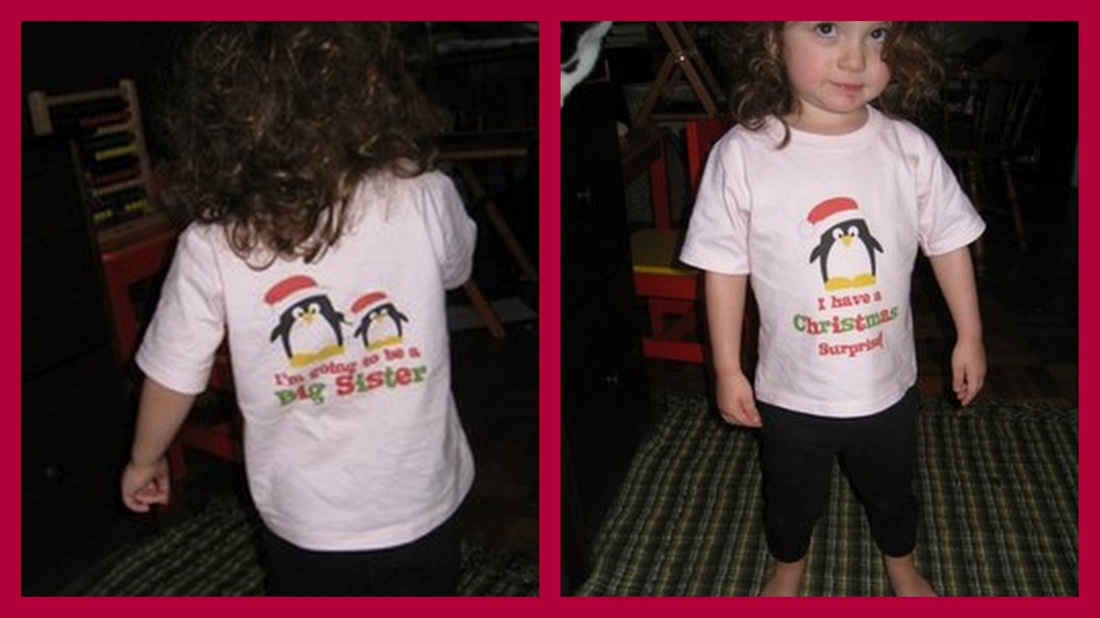



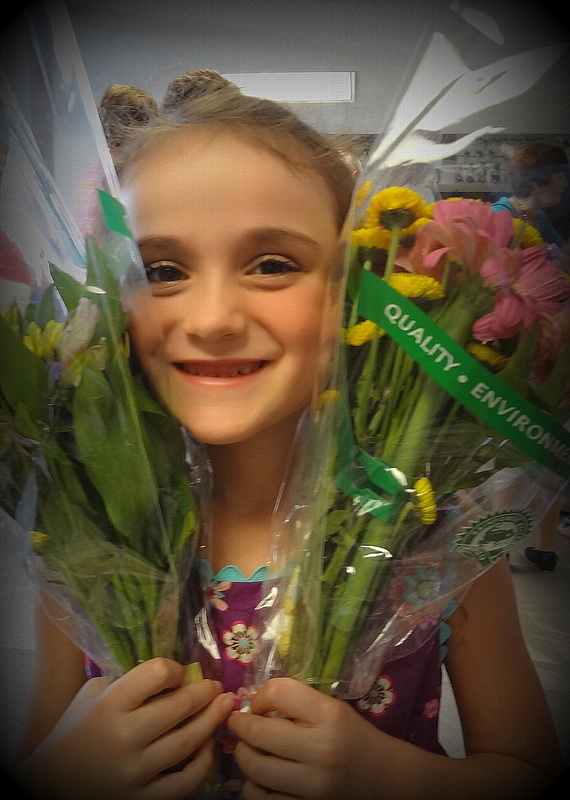
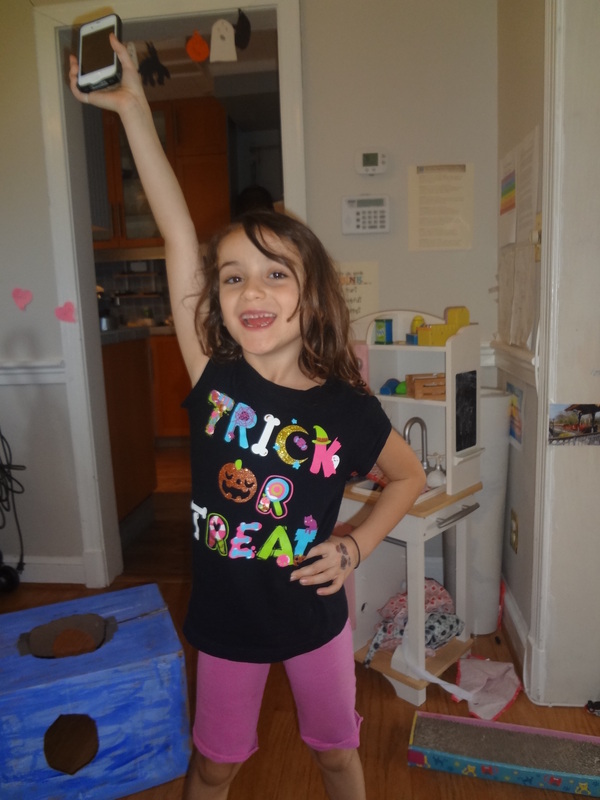
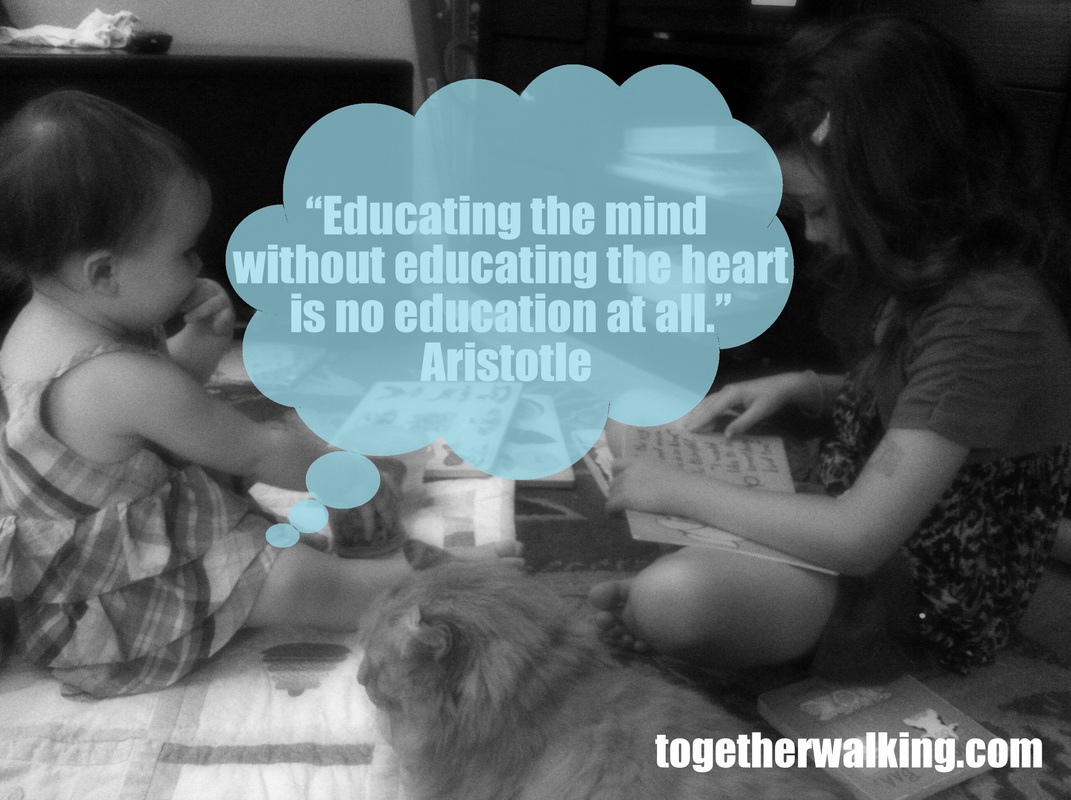
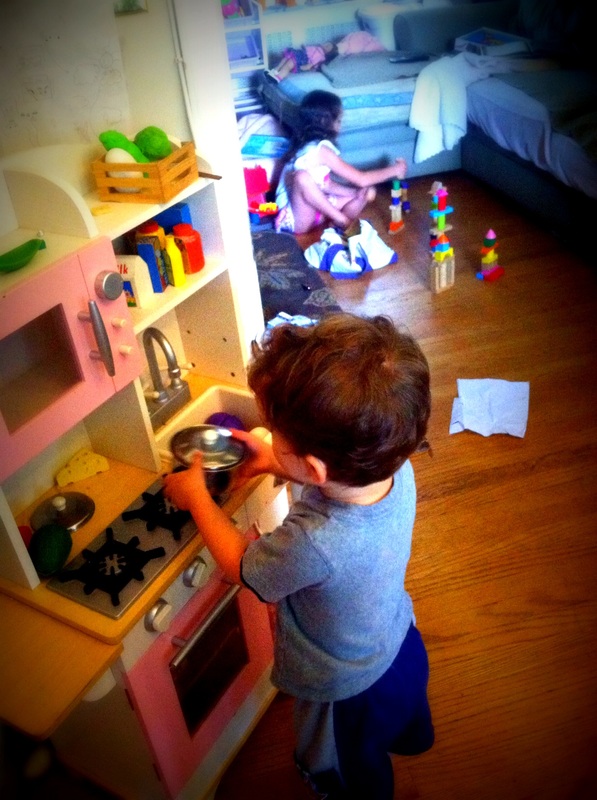
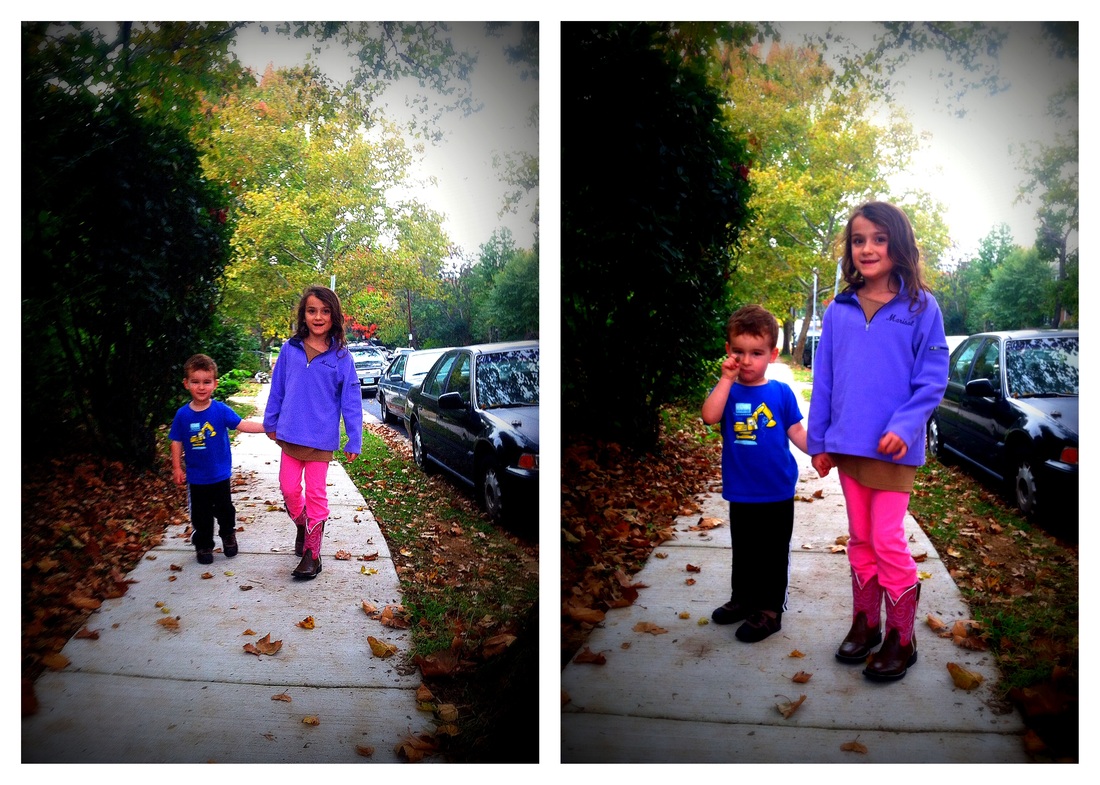


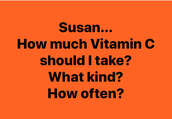
 RSS Feed
RSS Feed
